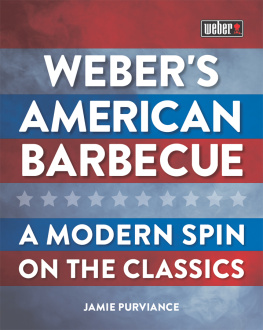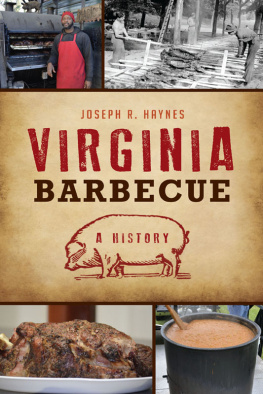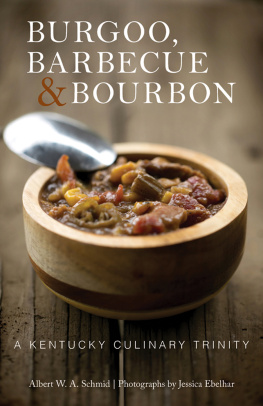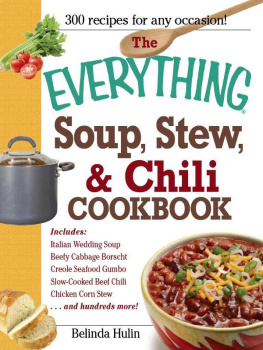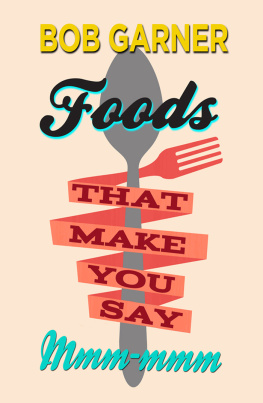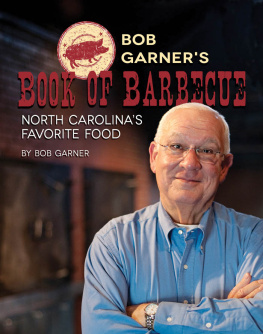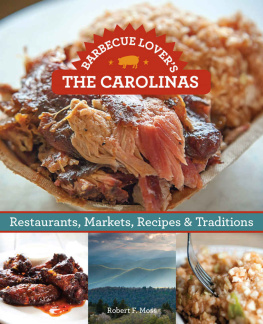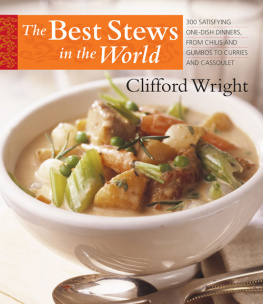


Published by American Palate
A Division of The History Press
Charleston, SC
www.historypress.net
Copyright 2017 by Joseph R. Haynes
All rights reserved
Cover image of woman holding the can of stew courtesy of Isle of Wight County Museum. All images herein provided courtesy of the Isle of Wight County Museum are used by permission.
First published 2017
e-book edition 2017
ISBN 978.1.43966.290.8
Library of Congress Control Number: 2017944970
print edition ISBN 978.1.62585.964.8
Notice: The information in this book is true and complete to the best of our knowledge. It is offered without guarantee on the part of the author or The History Press. The author and The History Press disclaim all liability in connection with the use of this book.
All rights reserved. No part of this book may be reproduced or transmitted in any form whatsoever without prior written permission from the publisher except in the case of brief quotations embodied in critical articles and reviews.
To Gailmy high school sweetheart, my wife, the mother of my children and my best friend.
To Mom and Dadthey taught me the value of honesty, gratitude, compassion, generosity, perseverance and hard work.
CONTENTS
FOREWORD
It has been a bit over three years ago that I received an e-mail from a stranger named Joe Haynes. Joe told me he was writing a book about barbecue in Virginia. He had stumbled on some of my writings about influences and interactions between early Virginia settlers and the native Powhatan people of eastern Virginia. He was looking for some clarifications and information. We clearly shared interests in the foodways history of the Old Dominion. Soon I was reading manuscript chapters, and the more I learned about Joe and his project, the more interested I became.
I confess that I was at first wary of becoming too involved. Barbecue can be a passion, and it was clear to me that he was obsessed. He is, I soon learned, a competitive pit master. A big part of his passion was, as one might expect, praising his own home states barbecue traditions and asserting that Virginia rightly holds pride of place among those claiming to be the historical and cultural source of Southern USA barbecue in all its glorious (and contentious) diversity. That way lies danger, I thought. Will this be another boastful my barbecue is better than yours book? Will it turn out to be mainly a cookbook or yet another treatise on a pit masters mysterious techniques and secret ingredients?
In a little over a year, Joe announced that his first book was finished and at the publisher. Soon I had a completed copy in my hand, and I was beyond amazed at his masterful accomplishment. Joe Haynes had demonstrated clearly that his interest far exceeds the scope of most published writing about barbecue in that his research was thorough, scholarly, thoughtful and wonderfully insightful. I quickly recommended Joes Virginia Barbecue: A History to my longtime foodways-scholarship colleagues.
As soon as his book hit the shelves, Joe told me he was already working on his next magnum opus. He was going to tackle Brunswick stew! And tackle it he has, along with barbecue hash, fish frys, Kentucky burgoo and hoecakes. These signature southern dishes belong to the barbecue tradition, which, together with his previous book, Joe thoroughly reveals, explicates and glorifies. He also includes some recipes. Some are his own or his familys, but there are a number from important historic and contemporary stewmasters. That said, these recipes are just a touch of extra frosting on the cake. This is not specifically a recipe book, nor is it a how to, but you could surely do well if you wanted to use information here to try your hand at a Brunswick stew party.
Joes work is significant scholarship. This is American culinary history and ethnology at its finest, researched with passion and recited with love, humor and intelligence. Joe understands and appreciates the historical depth and cultural significance of these traditions. He clearly sees and helps tease out the contributions of ancient English foodways and their adaptations to and adoptions of those of Native America, as well as the role of enslaved Africans and African Americans who often were the true masters of the barbecue and stewpot. He follows traditions as they spread and evolved through the southward and westward expansion of the nation.
I cannot imagine reading this book without experiencing a craving in the belly and a mouthwatering wish to relive some of this rich history. So, my friends, read on and learn and be prepared to hunger for a day we can all sit together at a long plank table under green trees near a cool spring and drink cider and eat thick Brunswick stew that has been stirred in an iron washpot for a day or two at an old-fashioned Virginia barbecue. When youve finished this volume, run right out and get a copy of Virginia Barbecue: A History if you dont already have it.
L. DANIEL MOUER, PHD
ACKNOWLEDGEMENTS
I owe heartfelt thanks to the following people for their invaluable assistance in producing this book:
Josephine Denny
Andrew McCrea
Norman Rainock
Lorraine I. Quillon
Chiles Cridlin
Lucy Tonacci
Alfonso McNeill
Melissa Wuske
Tracy Neikirk at the Ilse of Wight County Museum
Julie and Matt Shaffer at Shaffers BBQ &Market
Craig Hartman at the Barbeque Exchange
Sandra L. Oliver
Dr. L. Daniel Mouer
Dr. Charlette Woolridge
Diane Dallmeyer at the Chesterfield Historical Society of Virginia
Nancy Richey at the Western Kentucky University Library
Kat Hagedorn, Lawrence Wentzel and Lara Ungar at the University of Michigan Library
Sarah Dorpinghaus at the University of Kentucky Library
Ron Sonntag at Boone Brands
Jamestown-Yorktown Foundation
Deborah Padgett and the good people of the re-created Powhatan Indian village at Jamestown Settlement living-history museum, Williamsburg, Virginia
Special thanks to my wife, Gail, for her loving support. Thanks to my parents, who raised me in rural Virginia and instilled in me a love for the food traditions that Virginians have practiced for centuries. Thanks to so many others who helped me complete this book. Unfortunately, I cant name everyone, and my failure to include deserved recognition is not intentional.
INTRODUCTION
Living in central Virginia my whole life, I have seen many changes over the years. We used to have front poaches (porches) and back dz (doors). Our midday meal was called dinner and our late meal supper. We ate pea-can pie and drank soft drinks that we called cokes regardless of the brand or flavor. We knew the difference between grilling and barbecuing and never made the mistake of calling our charcoal grill a barbecue grill. We dug potatoes, shelled beans, put wood in the stove on cold mornings, churned butter, plowed the field, shucked corn with a hand-cranked sheller, worked all morning in a field filling bags with creese salad (watercress), gleaned corn from fields to feed the hogs and hung hams and bacon in the smokehouse.
My mother used to make Brunswick stew using corn, tomatoes and butterbeans that my father grew. My parents preferred the stew with just fatback or a couple of pork spare ribs in it and no other meats. Being a hunter, my father occasionally made squirrel soup. However, my mothers squirrel gravy was the true squirrel delicacy in our home. She cut the squirrels into quarters and simmered them for a few hours until they were tender. Next, she dredged the squirrel quarters in seasoned flour and fried them. Using the drippings and broth, she made a rich squirrel gravy that she served with hot hoecakes or biscuits. There are few things as delicious as hot hoecakes smothered in gravy made from a Virginia gray squirrel that has spent its whole life dining on whatever it can forage in the deep forest.
Next page







